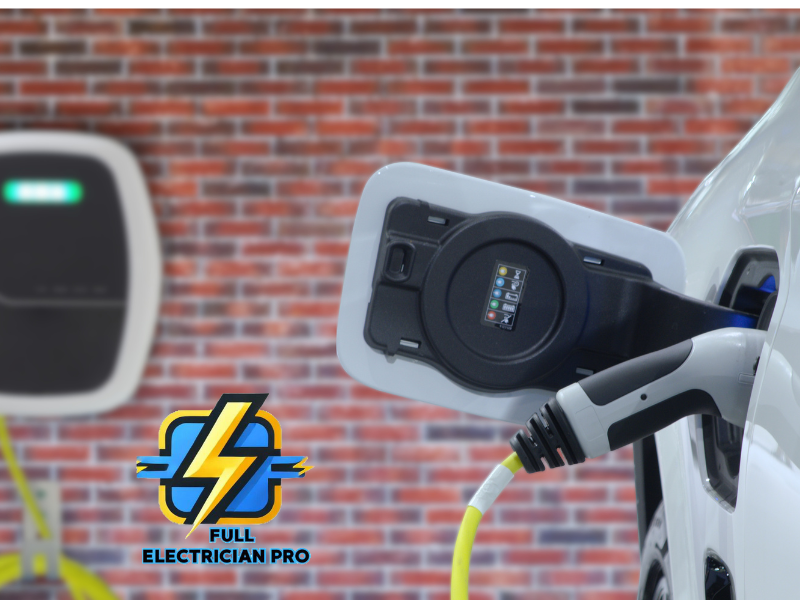
EV Charging Installation: Common Issues, Repairs, and Benefits
As electric vehicles (EVs) become more popular, installing dedicated EV charging stations at homes and businesses is becoming increasingly important. EV chargers ensure that vehicles are powered efficiently, but their installation and maintenance require professional expertise. Understanding the common and uncommon issues that may arise during EV charging installation, as well as the benefits of having a charging station, can help make the process smoother and safer.
Common Issues with EV Charging Stations
1. Circuit Overload: One of the most common issues during EV charger installation is circuit overload. EV chargers require a significant amount of power, and if the existing electrical panel cannot handle the load, it can cause frequent tripping of breakers or even damage to the wiring.
2. Incompatible Wiring: Many homes or businesses may not have the appropriate wiring for the installation of high-power EV chargers. This can lead to inefficiencies, overheating, or even dangerous electrical conditions if the wiring is not upgraded.
3. Slow Charging Speeds: If the charger is not installed correctly, or if the circuit is underpowered, the EV may charge more slowly than expected. Ensuring the charger has access to the right amount of power is key to efficient charging.
4. Faulty Installation: Improper installation of EV chargers can result in a range of issues, from inefficiency to potential hazards. A certified electrician ensures that the charger is properly installed and connected to a dedicated circuit.
5. Frequent Tripping of Breakers: If the electrical panel is not upgraded or the installation isn’t done correctly, the breakers may trip frequently, interrupting the charging process. This can be due to a lack of capacity or a problem with the circuit design.
Uncommon or Complex Issues
1. Electrical Interference: In some cases, EV chargers can cause electrical interference with other systems, such as home automation or security systems. This is a more complex issue that requires careful planning and installation to avoid conflicts.
2. Inconsistent Charging Due to Fluctuating Voltage: Voltage fluctuations in your electrical system can lead to inconsistent charging or even damage the EV charger. Installing voltage regulators or surge protectors can help mitigate this issue.
3. Grounding Issues: Improper grounding during installation can pose a serious safety risk. EV chargers need to be grounded correctly to prevent electrical shocks or fires.
4. Faulty Electrical Panels: In older homes or commercial buildings, outdated or faulty electrical panels may not support the installation of an EV charger. Replacing or upgrading the panel may be required before installation.
5. Charger Malfunctions: Sometimes, the EV charger itself may malfunction due to manufacturing defects or wear and tear over time. In these cases, the charger will need to be repaired or replaced.
EV Charging Station Repairs
1. Upgrading Electrical Panels: Many EV chargers require a dedicated circuit and sufficient electrical capacity. Upgrading an old or undersized electrical panel ensures the charger receives the power it needs to operate safely and efficiently.
2. Fixing Faulty Wiring: If the wiring is not up to code or is incompatible with the EV charger, it may need to be replaced. This can prevent overheating, improve charging speed, and reduce safety risks.
3. Addressing Grounding Issues: Proper grounding is essential for the safe operation of EV chargers. If grounding issues are identified, an electrician can resolve these by ensuring the system is connected correctly and safely to the electrical grid.
4. Replacing Faulty Chargers: If the charger itself is malfunctioning, whether due to manufacturing defects or wear and tear, replacing it with a new, more reliable model may be necessary.
5. Resolving Breaker Tripping: If frequent breaker tripping is an issue, an electrician can redistribute the electrical load, add a dedicated circuit, or upgrade the panel to handle the charger’s power requirements.
Reasons to Install EV Charging Stations
1. Convenience: Installing an EV charging station at home or work offers unparalleled convenience. You no longer need to rely on public charging stations, allowing you to charge your vehicle overnight or while working, saving time and hassle.
2. Increased Property Value: Homes and businesses with EV charging stations are increasingly in demand, as more people switch to electric vehicles. Installing a charger can boost your property’s value and appeal to prospective buyers or tenants.
3. Fast Charging: Home or business EV chargers provide faster charging speeds compared to standard wall outlets. Depending on the charger’s capacity, you can charge your vehicle in just a few hours, ensuring it’s always ready when you need it.
4. Supporting a Greener Future: Installing an EV charger supports the transition to electric vehicles, which reduce carbon emissions and reliance on fossil fuels. It’s an eco-friendly investment that contributes to a greener future.
5. Compliance with Environmental Regulations: In many regions, businesses are incentivized or even required to provide EV charging stations to meet environmental regulations. Installing a charger can help your business stay compliant and appeal to eco-conscious customers.
In conclusion, installing an EV charging station is an excellent investment for both homes and businesses, providing convenience, environmental benefits, and enhanced property value. However, it’s crucial to ensure that installation is handled by a licensed electrician to avoid common and uncommon issues. With proper installation and maintenance, your EV charger will provide reliable service for years to come.